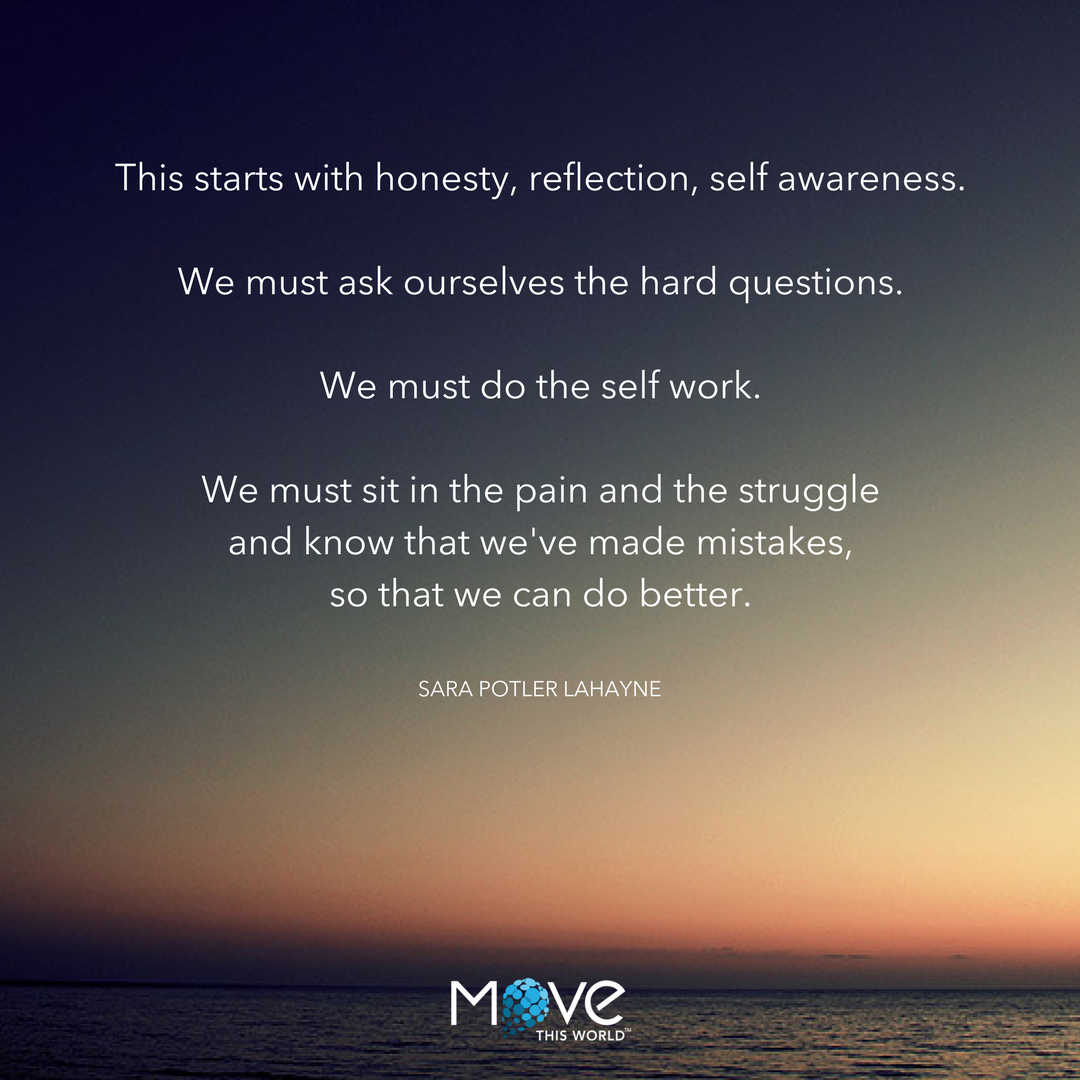The United States of America would not be what it is today without enslaving millions of people of color.
White inhabitants of this nation would not have the same opportunity, the same privilege, without Jim Crow laws, redlining, or mass incarceration.
These are uncomfortable truths for many Americans, but it is the truth. Whether we like it or not, our shared history shapes the context of today.
We have a responsibility to confront our history, not to protect the icons of a shameful era.
On August 11, 2017, white nationalists gathered in Charlottesville, Va. to protest the long overdue removal of Robert E. Lee’s statue. In what could be considered a fitting tribute for the hatred Lee fought to protect, the march culminated in casualties and injuries against women and people of color.
We at Move This World condemn these acts of violence, and reject the hatred and intolerance that inspired them.
Moments like these serve as a reminder of why we do this work to build safe and supportive communities. And now, during the fallout of the tragic events in Virginia, is when our work is needed most.
As we wrote following the 2016 election, our nation is in desperate need of healing. We must transform our anger and disgust to recommit our energy, our talents, to the purpose of building safe and supportive communities where diverse voices are heard and uplifted.
This starts with honesty, reflection, self awareness.
We must ask ourselves the hard questions.
We must do the self work.
We must sit in the pain and the struggle and know that we’ve made mistakes, so that we can do better.
We will never surrender. But only together can we truly Move This World.
That requires listening. It means letting someone else speak, and hearing things you may be uncomfortable with. We can no longer deny that racism in America is alive and well — nor can we deny that it ever existed in this country.
We are haunted by our past. That’s what makes this work difficult. The only way forward is to understand why the conversation about systemic oppression and white supremacy makes people uncomfortable, to address that underlying feeling, and to lead with empathy.
We cannot ignore our past. We cannot dismiss the present. It is well beyond time that we listen to the voices of the oppressed and actively address the issues brought forth within ourselves and our communities.
In solidarity,
Sara LaHayne


